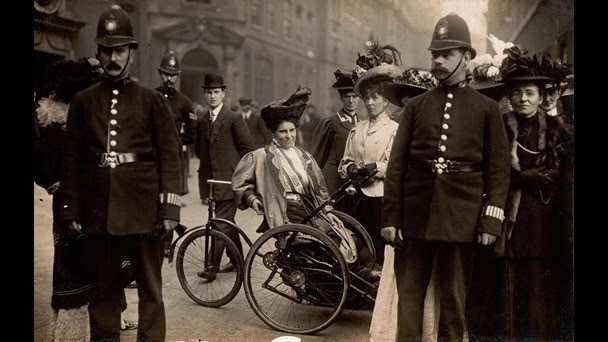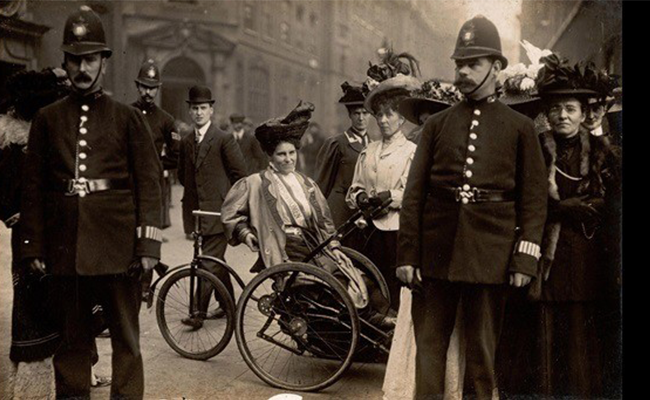March is Women’s History Month! It’s the time to honor the contributions and histories of women around the world. This month, you’ll be seeing articles and news stories everywhere profiling trailblazing women from all walks of life— illuminating the struggles that women have faced in breaking through barriers.
But, there’s one group of women that, unsurprisingly, don’t receive the same attention during this month: disabled women.
And that needs to change.
Historically, disabled women, and especially disabled women of color, have been deeply marginalized. Facing higher rates of abuse, assault, violence, institutionalization and isolation, disabled women have been silenced and cast aside— time and again.
Systemic change to alleviate these hardships require two fundamental components (among other things, of course). But, these two are essential: 1) marginalized folks must be able to freely connect/collaborate together and 2) non-marginalized allies must be committed to seeking change, too.
But, given the barriers of abuse and isolation the disabled face, it’s been especially difficult for disabled women to connect with one another. Further, because of the influence of ableism, whenever support or awareness is shined upon women’s issues, it is usually about able-bodied women and aimed toward an able-bodied audience. So, getting the stories of disabled women out into the world to gain support and allyship is difficult.
This must change, too.
So, we’d like to take this opportunity to highlight some extraordinary disabled women that you should know about.
Wilma Mankiller

Wilma was a community advocate and an indigenous rights activist that became the first woman to ever lead the Cherokee Nation. Her contribution was profound and lasting— and she was also born with a rare form of muscular dystrophy, myasthenia gravis. You can read more about her accomplishments here: https://www.nytimes.com/2010/04/07/us/07mankiller.html?
Barbara Jordan

Barbara was a Civil Rights pioneer, lawyer, and congresswoman that fought for marginalized people her entire career. A member of the LGBT community, she also lived with multiple sclerosis. She wisely once said, “If the society today allows wrongs to go unchallenged, the impression is created that those wrongs have the approval of the majority.” You can learn more about Barbara’s amazing life here: https://www.womenshistory.org/education-resources/biographies/barbara-jordan
Rosa May Billinghurst

Rosa May was a fierce suffragette that fought for women’s voting rights in early 20th century England. Not afraid of incarceration or reprisal, Rosa May, a polio survivor, protested from her wheelchair and was brutalized by the police— being imprisoned and arrested multiple times. Undaunted, she continued the fight until all UK women 21+ won the right to vote in 1928. You can learn more about her vibrant life here: https://www.nytimes.com/2020/10/30/obituaries/rosa-may-billinghurst-overlooked.html
Harriet Tubman

Gotcha. I bet you’ve heard of Harriet Tubman, and likely of her extraordinary accomplishments in the fight for freedom from slavery. But, did you know that she was disabled? Well, she was. Violently attacked by a slaveowner, Harriet lived with epilepsy and other neurological conditions as a result of the injuries she sustained. Her disability has been scrubbed from the history books, but its impact upon her and upon her work and efforts shouldn’t be downplayed.
Gini Laurie

Gini was a key advocate for the independent-living movement for disabled adults in the United States. A survivor of polio, Gini understood that independent/community-based living was crucial— and resulted in fuller, happier and healthier lives for adults of all disabilities. A fierce critic of institutionalization, she helped inspire the 1973 Rehabilitation Act and co-founded the first branch of the Centers for Independent Living. You can learn more about Gini’s work here: https://post-polio.org/networking/advocacy/independent-living-the-role-of-gini-laurie/
Learning about trailblazing disabled women is a necessary step in advancing rights and supports for disabled women everywhere. Of course, there are many more amazing women that we could share about here, too, but we only have so much space. So, we urge you to go out and learn more. Please share what you find online using the hashtag #DisabledWomensHistoryMonth to help spread the word!
Let’s make this month one to remember!

